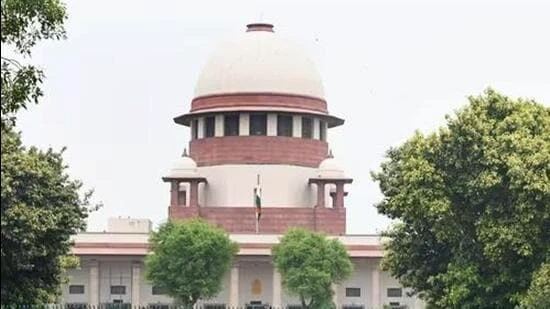The Supreme Court on Wednesday stayed a Delhi High Court order that had directed the Delhi International Airport Ltd (DIAL) and other GMR Group entities to vacate a sprawling farmhouse in southwest Delhi, currently being used as the residence of GMR Group Chairman Grandhi Mallikarjuna Rao.
A bench of justices Aravind Kumar and NV Anjaria passed the interim order while issuing notice on the DIAL’s appeal, making it clear that the high court’s September 1 judgment would remain on hold for now. The bench also scheduled the matter for further hearing on October 29.
The farmhouse, part of Pushpanjali Farms, spans 3.81 acres and houses a 30,000 sq. ft. residence with landscaped lawns and an outhouse. In April 2020, 2.45 acres of the property, including the main house, were leased to DIAL and other GMR affiliates at a monthly rent of ₹39.6 lakh, later revised to ₹45.6 lakh. The farmhouse was used as the official residence of GMR’s chairman, with the company claiming to have invested heavily in amenities such as a swimming pool.
At Wednesday’s hearing, senior advocate Abhishek Manu Singhvi, appearing for DIAL, questioned the very basis of the high court ruling.
“How can a summary order be passed in the impugned manner? There is a bar to move the civil court under the Delhi Land Reforms Act. This court has also held so. All this has been examined by the high court in a summary manner. It is a summary judgment passed under the Commercial Courts Act. This is short-circuiting of the worst kind,” Singhvi argued, adding that the land continued to be recorded as agricultural and that disputes over such land were triable issues.
Countering him, senior advocates CA Sundaram and PS Patwalia, representing Onkar Infotech — the buyer of the estate, argued that the nature of usage was decisive. “While the land may be characterised as agricultural, its usage is the key. The high court has relied on this court’s judgments to underline that the land in question was being used as a residence,” Sundaram submitted. He added that the lease period had already expired in March this year, reducing the matter to one of unlawful occupation.
When asked by the bench where the evidence lay, Sundaram pointed to statements made by the GMR side itself about the property’s use as a residence. Patwalia also told the court that GMR’s chairman had attempted to buy the farmhouse but when the deal did not go through, it was Onkar who purchased it for ₹115 crore.
The bench pressed Singhvi to clarify whether his client was willing to shift to another residence, but Singhvi responded that the lease was extendable until March 2028 and that DIAL had been regularly paying ₹60 lakh in rent.
In its interim order, the Supreme Court directed issuance of notice on DIAL’s petition, allowed four weeks for filing of a counter-affidavit, and two weeks thereafter for a rejoinder. “Meanwhile, there will be an interim stay on the impugned order. List after six weeks,” said the bench, fixing October 29 as the next date of hearing.
The court’s intervention comes against the backdrop of a detailed September 1 high court judgment which had held that the unregistered 2020 lease deed was void in law, reducing GMR’s occupation to a month-to-month tenancy that was lawfully terminated by Onkar Infotech. The high court had reasoned that the property was used as a luxury residence and not for agricultural purposes, and therefore the Delhi Land Reforms Act was inapplicable.
The lease was initially executed with Indus Sor Urja, the previous owner of the property, but the agreement was never registered. In May 2024, Indus Sor Urja sold the estate to Onkar Infotech for ₹115 crore, with stamp duty and registration charges of nearly ₹9 crore. Following the sale, DIAL recognised Onkar as the new landlord. In July 2024, Onkar issued a termination notice, refused to accept further rent, and demanded possession.
In its judgment, the high court held that the notice issued by Onkar Infotech complied with statutory requirements, bringing the tenancy to an end, adding that the property was being used as a luxury residence and not for agricultural purposes, making the DLR Act inapplicable. According to the high court, the plea that the lease ran till 2028 was not legally tenable without a registered agreement.
It concluded that GMR’s continued possession after the termination notice was unlawful and decreed possession in favour of Onkar Infotech, directing DIAL and other GMR entities to vacate the farmhouse, effectively restoring the property to its new owner.”
